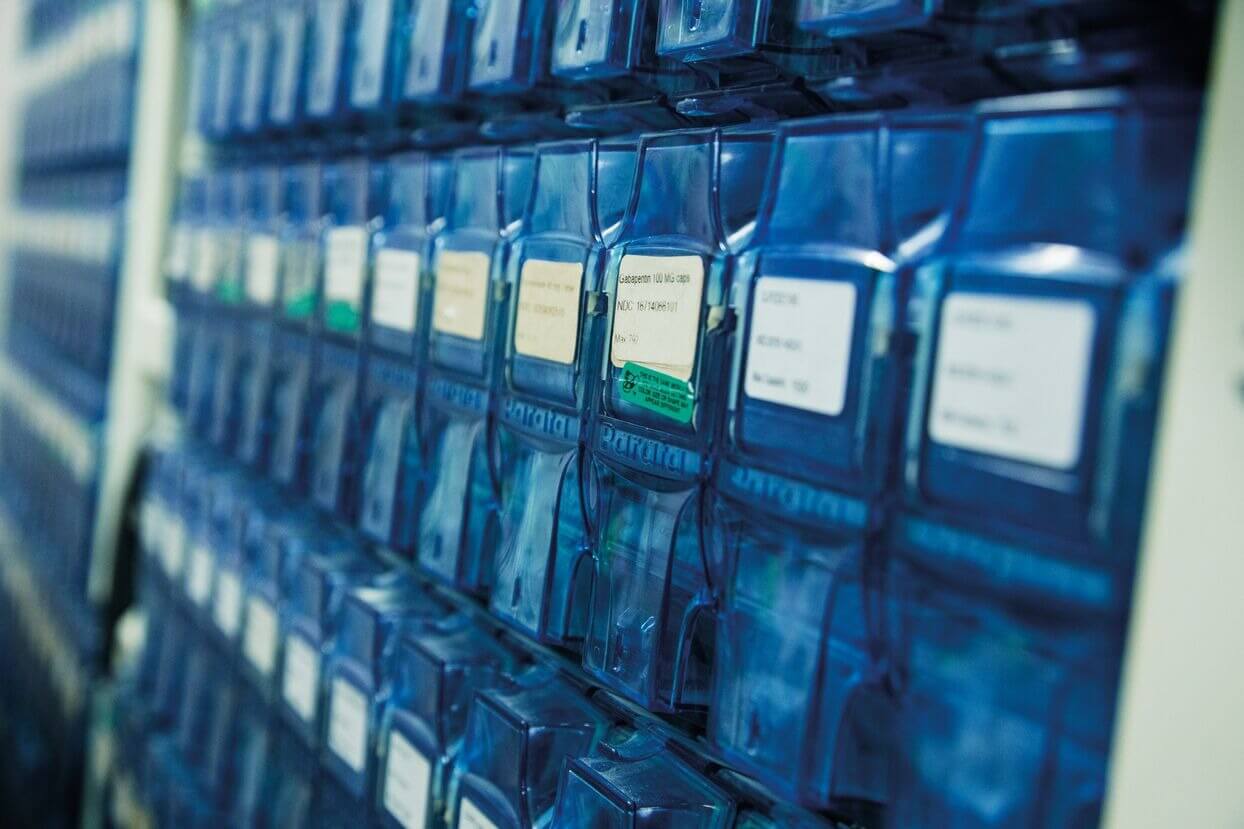About
Guided by our values, we are an impact-driven organization that improves care in every setting – one product, one partner, one patient at a time.
At McKesson, we recognize the complex regulatory landscape of the pharmaceutical industry, which is essential for ensuring the safety and integrity of medications. With the ongoing implementation of the Drug Supply Chain Security Act (DSCSA), compliance requirements are continually evolving, and it is crucial for businesses to stay ahead of these changes.
The DSCSA is a landmark legislation aimed at enhancing the security and traceability of prescription drugs throughout the United States. It outlines a comprehensive framework that spans the entire drug supply chain, from manufacturers and distributors to pharmacies and healthcare providers. The DSCSA bolsters patient safety and safeguards against counterfeit or adulterated drugs entering the market by establishing a standardized system for tracking and tracing pharmaceutical products.
McKesson has reached a significant milestone in our multi-year journey toward full DSCSA serialization compliance. As of August 27, 2025, we are actively exchanging serialized transaction data with our trading partners in alignment with the FDA’s requirements.
As a trusted healthcare partner, we are committed to assisting our customers in navigating the intricacies of the DSCSA. We continue to focus on ensuring accurate and complete data transmission and effectively supporting our suppliers and customers through this critical transition—so that patients can continue to access the medicines and healthcare solutions they depend on.
Watch our DSCSA webinar series and learn how you can be prepared.

Our comprehensive FAQ section is designed to provide you with clear and concise answers to the most common inquiries. Whether you're a manufacturer, wholesaler, dispenser, or are simply curious about how this legislation impacts the pharmaceutical supply chain, our FAQs will help you navigate the essentials.
As your distributor and DSCSA partner, we want to make sure you're aware of the valuable resources available from the FDA. Below we’ve gathered the latest guidance, regulations and updates essential to keeping you prepared.
Whether you're seeking guidance on specific aspects of the DSCSA or want a general overview, we invite you to review our FAQs below designed to address your questions and provide you with valuable information.
The Drug Supply Chain Security Act (DSCSA), signed into law on November 27, 2013, outlines steps to achieve interoperable, electronic tracing of products at the package level to identify and trace certain prescription drugs as they are distributed in the United States. These requirements enhance the Food and Drug Administration’s (FDA) ability to help protect consumers from exposure to drugs that may be counterfeit, stolen, contaminated or otherwise harmful. Implementing these requirements also improves the detection and removal of potentially dangerous drugs from the drug supply chain to protect U.S. consumers.
For eligible trading partners that meet the conditions of the FDA’s Oct. 9, 2024, exemption, these trading partners are exempt from certain DSCSA requirements until the following dates:
While eligible large dispensers (26 or more pharmacists/technicians) have an exemption from certain DSCSA serialization requirements until Nov. 27, 2025, and eligible small dispensers (25 or less pharmacists/technicians) have an exemption from certain DSCSA serialization requirements until Nov. 27, 2026, the DSCSA requirements for distributors for saleable returns became effective on Aug. 27, 2025.
GS1 (Global Standard 1) standard identifiers are used for product and party/location identification in the interoperable electronic exchange. Products are identified by Global Trade Identification Number(s) (GTIN). Trading partners are identified by Global Location Number(s) (GLN).
In-scope DSCSA product will continue to have NDC numbers. The GTIN includes the NDC.
DSCSA requirements do not apply to nonprescription drugs (over-the-counter drugs) or animal drugs (drugs subject to section 512 of the Food Drug & Cosmetic Act). Drugs that fall under the DSCSA requirements are defined by the FD&C Act. Product tracing, product identifier, authorized trading partner, and verification requirements in Section 582 of the FD&C Act apply to product as defined by Section 581(13) of this Act. Product means "a prescription drug in finished dosage form for administration to a patient without substantial further manufacturing (such as capsules, tablets, and lyophilized products before reconstitution)."
The section 582 requirements do not apply to:
This information is available on the item product page of all McKesson ordering portals.
Prior to the customer’s respective serialization DSCSA effective date, customers should make changes, including but not limited to the following:
*Customers should not rely on this information as legal or other professional advice with respect to the customer’s DSCSA obligations.
*The information on this page contains references to dates that have now been updated as of Oct. 9, 2024, when the Food and Drug Administration (FDA) announced new deadlines for DSCSA compliance for eligible manufacturers, distributors and pharmacies (FDA Exemption). New deadlines for DSCSA compliance for eligible manufacturers, distributors and pharmacies (FDA Exemption).
Have a question about DSCSA?
For pharma manufacturers or current 3PL customers
*The information on this page contains references to dates that have now been updated as of Oct. 9, 2024, when the Food and Drug Administration (FDA) announced new deadlines for DSCSA compliance for eligible manufacturers, distributors and pharmacies (FDA Exemption). New deadlines for DSCSA compliance for eligible manufacturers, distributors and pharmacies (FDA Exemption).